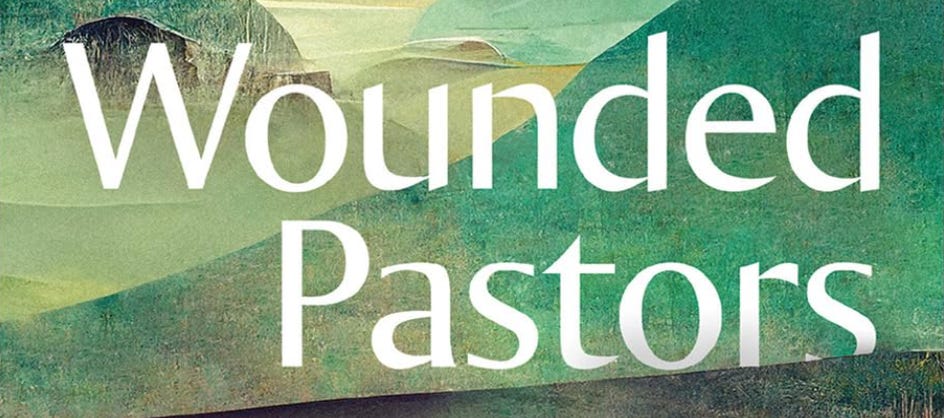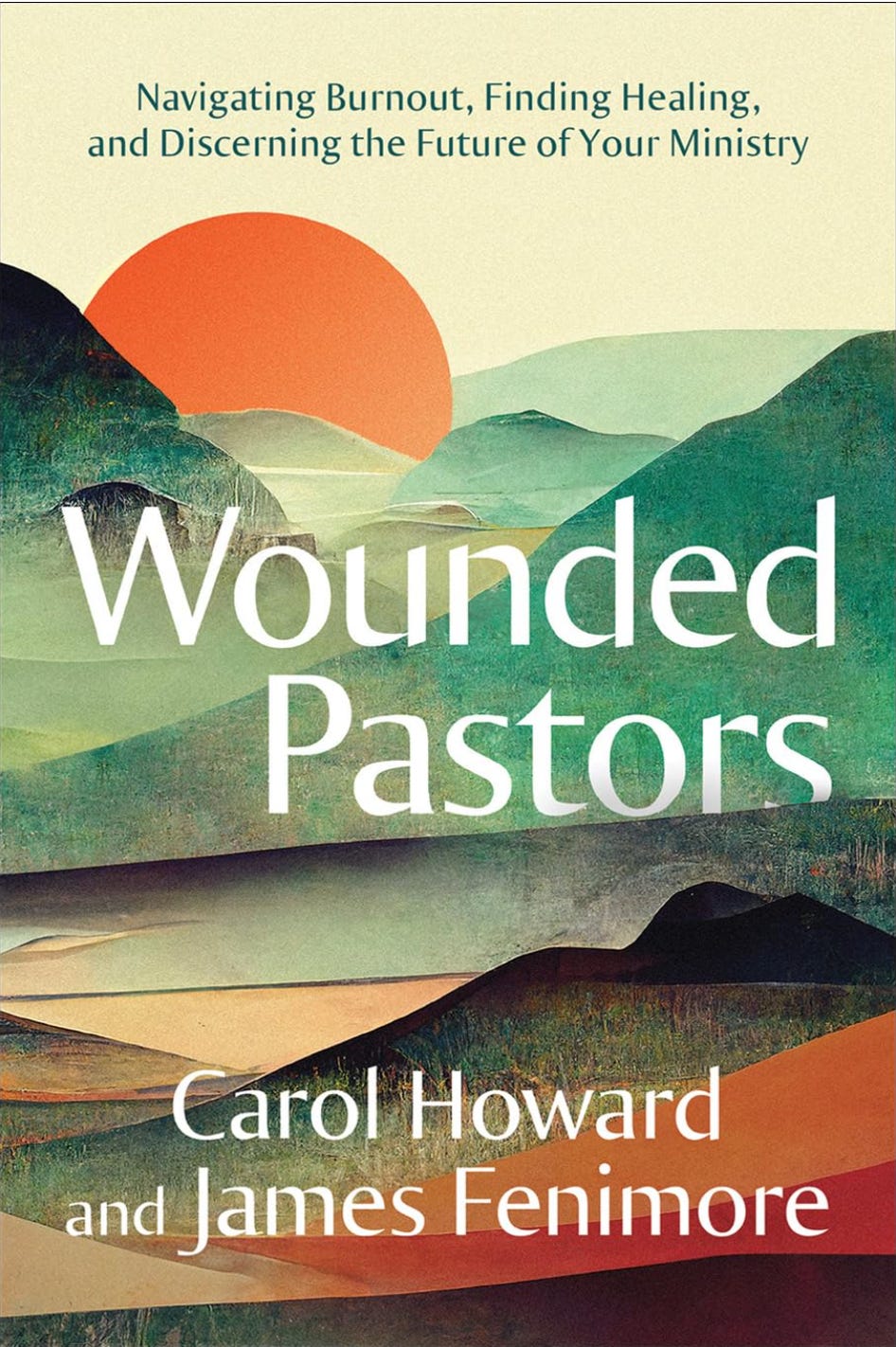Wounded Pastors and Friendships
Healthy pastors avoid enmeshment in the lives of their congregants, and a healthy church promotes and nurtures boundaries. Nothing challenges the boundaries like the last five years of pastoring. There are many wounded pastors, which is why I want to turn with you to the new book by Carol Howard and James Fenimore, Wounded Pastors: Navigating Burnout, Finding Healing, and Discerning the Future of Your Ministry. The book, naturally enough, will be most read by pastors but elders, deacsons, ministry leaders, and vestries will benefit this book. Howard is a PCUSA pastor and Fenimore was a pastor in the UMC but is now a therapist. The former has re-entered the pastorate; the latter opted out of the pastorate. Both know the wounds.
Their first chapter, “Finding Our People,” with the “our” being pastors and the concern of the chp is friendship.
The health of this chapter came into full view where they began: “Keeping boundaries around church friendships can give us self-protection.” Unbound read pastoral relationships with congregants promotes and often provokes broken relationships. “Bullies,” they observe, “tend to flourish in churches. Even the most well-intentioned members can let us down when we become the church troll’s latest victim, because they will often seek a veneer of peace over the pastor’s well-being.”
Second, “when the pastor has obvious favorites, it can cause rifts in the congregation.”
Third, “True friendship has a mark of mutuality.” Here is gold for all of us: “When we move into the professional realm, our role shifts, and it's no longer appropriate for members to meet our need for intimacy and affection. It's not their job. It would be like spending an hour in therapy, attempting to solve our counselor’s marital problems. If we do encounter A congregation that functions to serve its pastors emotional demands, then we often find a narcissist in the minister’s role.” They continue: “churches are not designed or called to meet the socio-emotional requirements of pastors.” Bottom line: The pastoral role is a professional role that puts friendships in their proper place by creating an appropriately healthy boundary between the pastor and the congregants. Professional relationships are not friendships.
Which is why their fourth point needs emphasis: “We [pastors] also need friendships that can last beyond a particular call.”
They turn next to the famous passage in Aristotle’s Nicomachean Ethics, in which the famous philosopher distinguished between three types of friendships: friendships of utility, friendships for pleasure, and true friendships, which are based on goodness, which brings into play the classic philosophical theory of virtue and virtue development. What these authors are contending is that the pastor needs to become aware of her types of relationships and friendships in the church.
Question: Which of these types of relationships do you think pastors need to form with congregants?
True friendships, or again friendships based in virtue formation, essentially develop a form of fidelity and mutuality, and thus are characterized by a back-and-forth between one another. “It is essential that we find our people.” Relationships in churches will challenge every pastor. “When you have toxic individuals with whom you need to connect, it requires you to find ways to keep distance.” They promote analyzing “our relationship patterns,” whether they gravitate toward the “fusing” (a kind of co-dependency) or cutting off, which at times means pastors not forming healthy relationships with congregants.
So, how do pastors find friendships, and they are clear that the deepest friendships will often (or more than that) be outside the church, not inside the church. Here are their suggestions:
(1) Find a hobby
(2) use continuing education for connections
(3) move to where your friends live (as Howard did one time)
(4) talk to neighbors and small-business owners
(5) broaden your interests
(6) meet with other pastors, where you can “scope out the people you really want to hang out with”
(7) join support groups
(8) use your time wisely
(9) put an unchangeable appointment on your calendar for friendships.
They tell a brief story about a woman who writes SOMETHING on her calendar when she knows she needs that time for friendships or personal time. When someone wants to meet, she can say she has something on her schedule.




This is such a hard line to walk. As pastor of a very small church, all of my members are my friends. But they are a different kind of friend. I have a responsibility before God for them. I am always “on.” (IYKYK) It is not an equal feeling of weightiness on their part. However, I do not hold back my heart or affection. I do not hide part of me away. They have full access. And sometimes, that means I get hurt. But I believe that is what love does. I am learning to say, “I need a break” when my church people start to demand more of my time than is healthy. And I have trained people in my life not to expect instant replies to every text, call or email. So yes, boundaries. But also yes, emotionally entangled lives. It’s messy. But it’s real love. Real life. Painful and rewarding and tragic and beautiful.
Scot, I share some of the hesitation Tamara and Carolyn voiced. I think it’s pushing caution too far to limit pastoral relationships to merely the “professional” category and therefore not a friendship. That may work for a therapist, but I don’t think it does for a pastor. For instance, a therapist can keep their family distant from their clientele, but I would have to send my wife and kids to another church than the one I pastor to do so.
I believe a more helpful approach is what Pete Scazzero describes in The Emotionally Healthy Leader. He calls these “dual relationships.” This recognizes that I am always a pastor even as a genuine friendship develops. This adds a complexity that both parties must understand. But such friendships are possible in wise, healthy people, and I’ve been greatly blessed by those in my church. I’ve found those who pastored elsewhere and are now members of the church understand this dynamic well, and they respect it.
While a pastor needs deep friendships outside the church, I think resisting these dual relationships because of their complexity would be robbing the pastor of a gift.